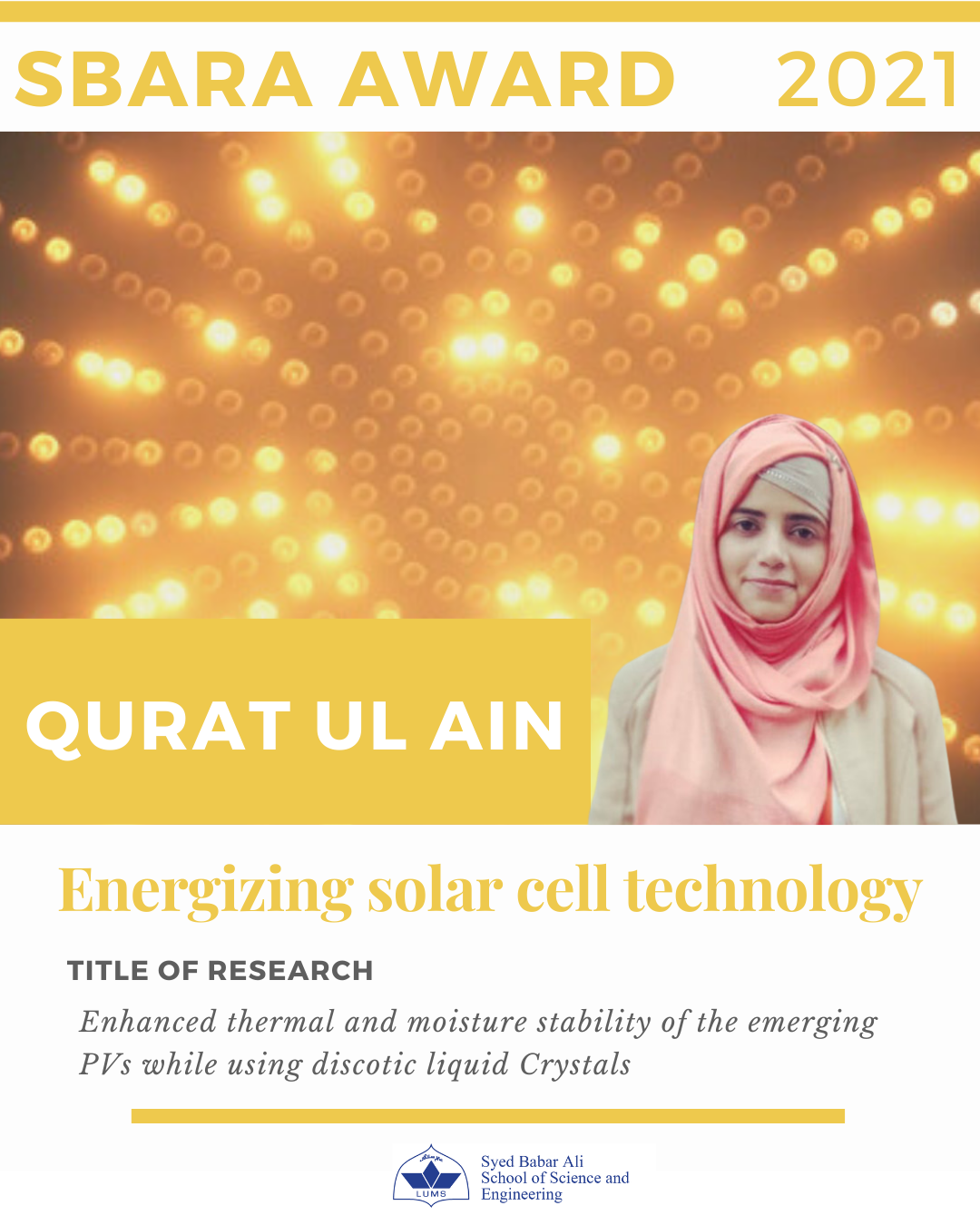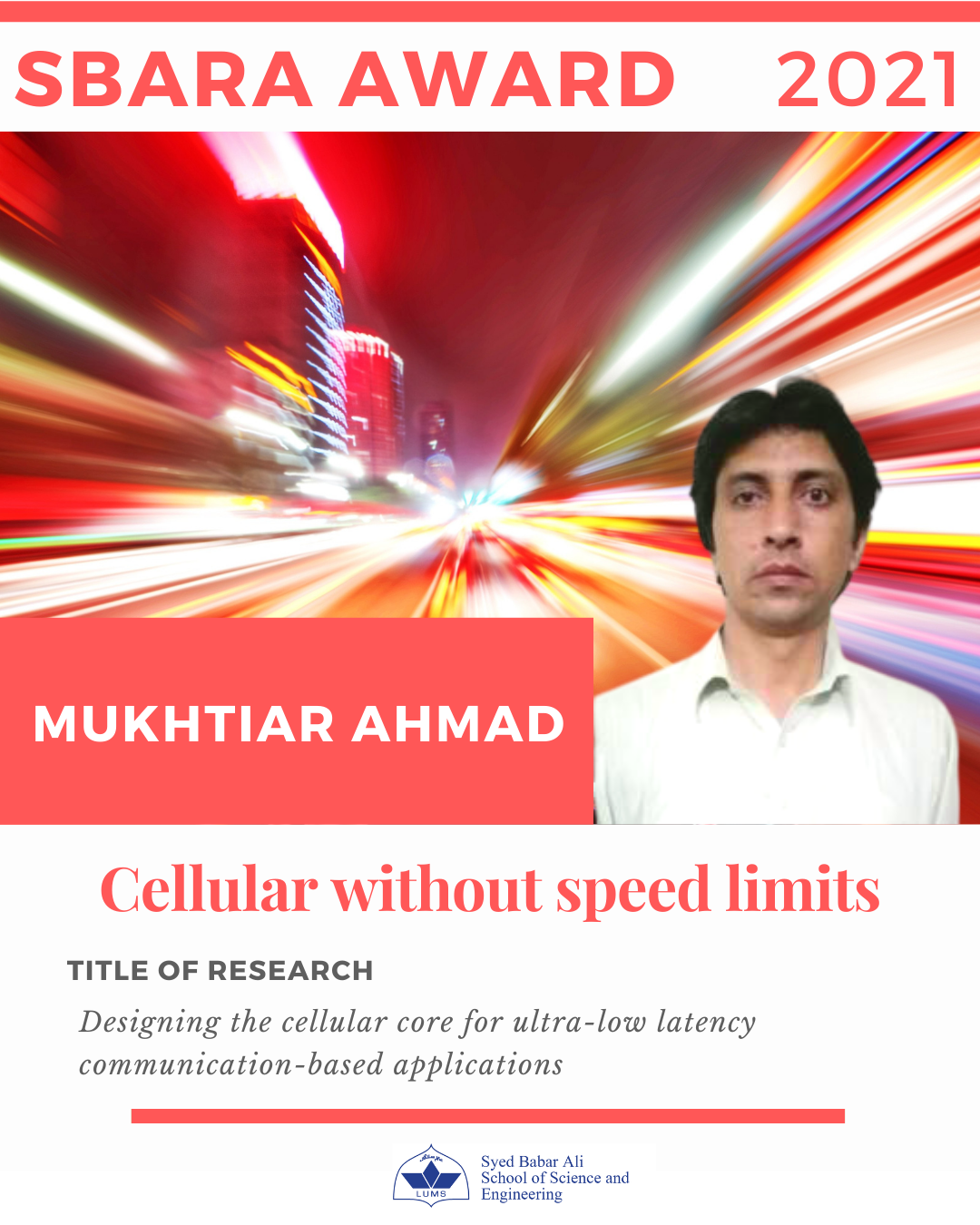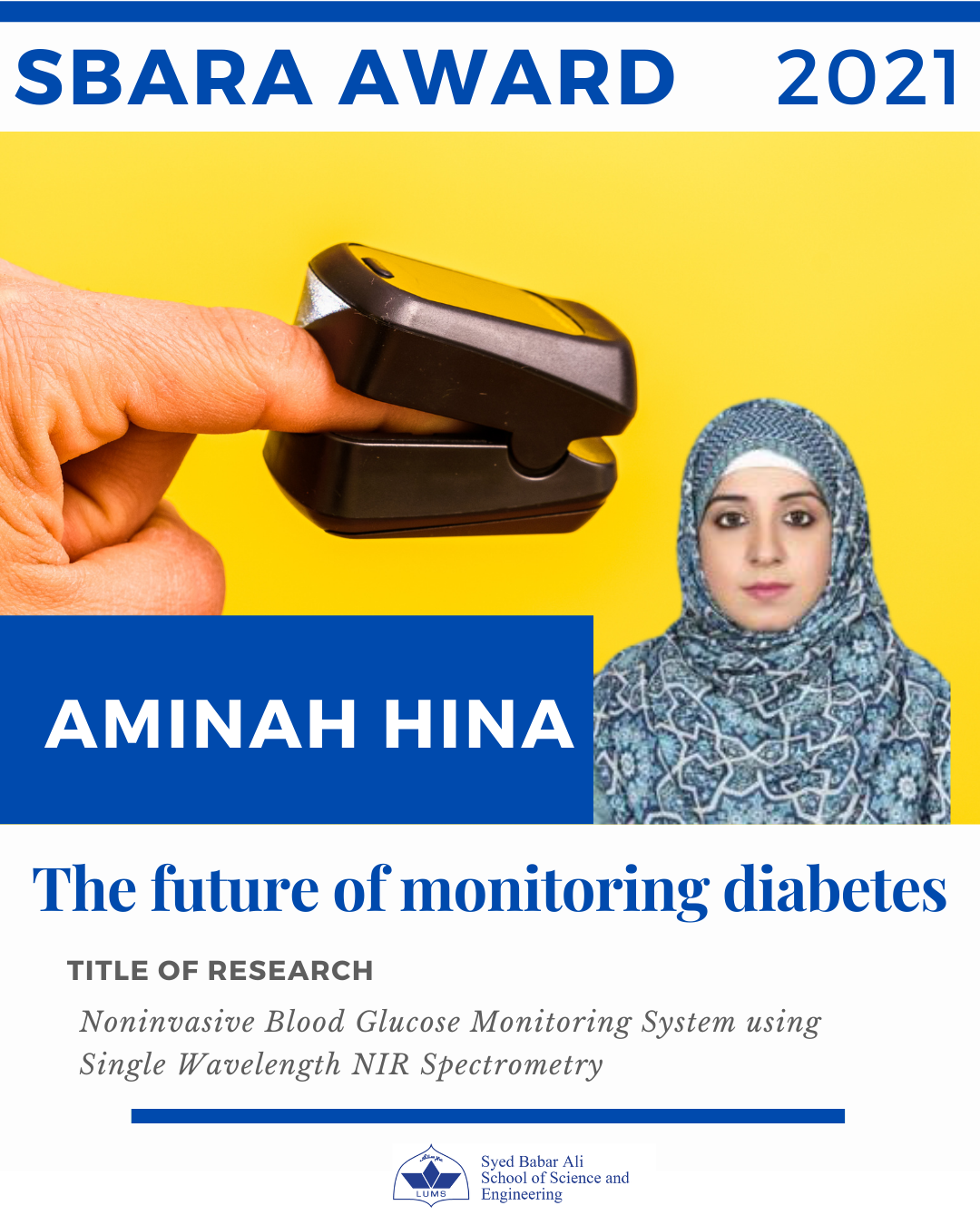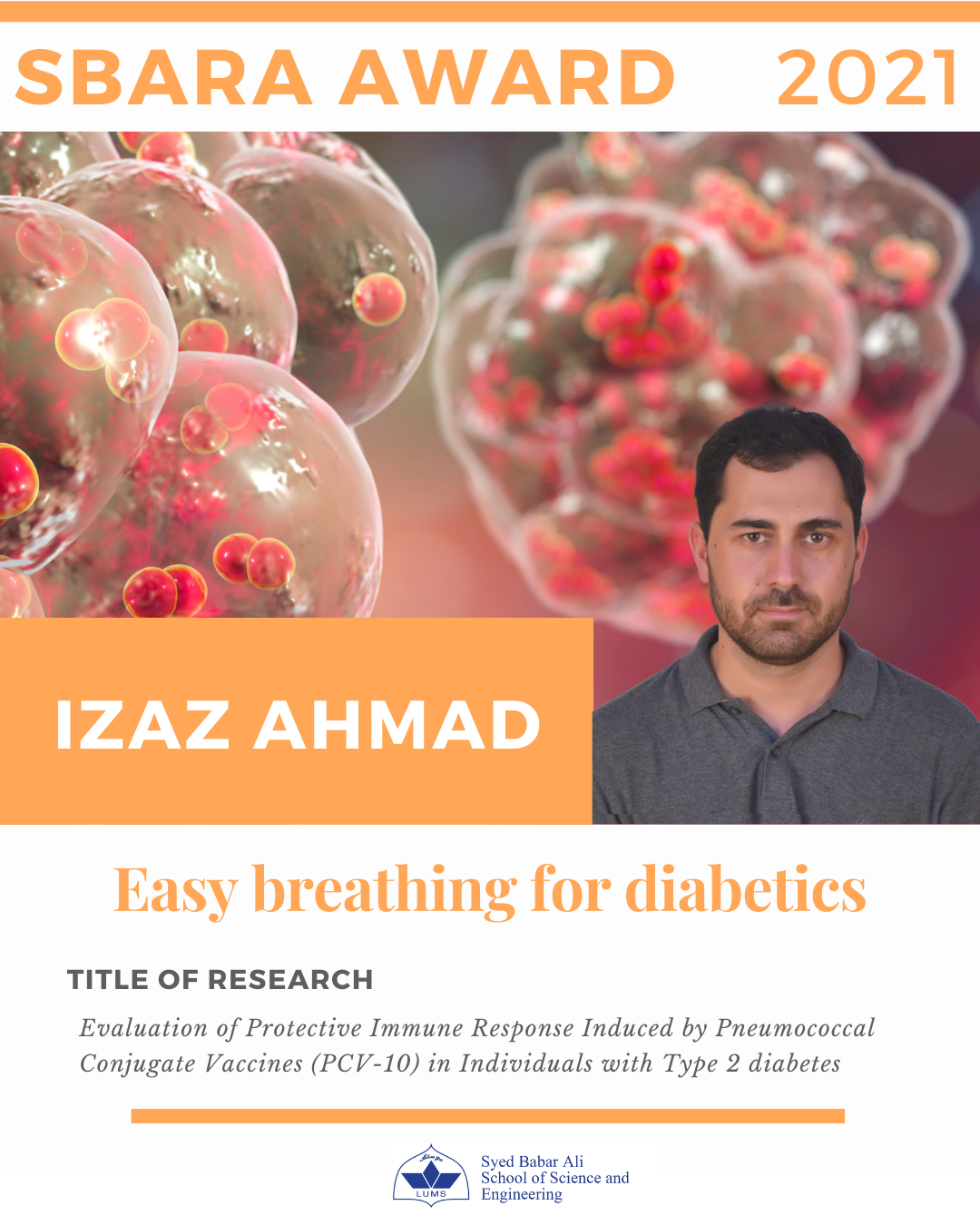
SBARA Awards 2021
Enhanced Thermal and Moisture Stability of the Emerging PVs while using Discotic Liquid Crystals
Supervisor: Dr. Ammar Ahmed Khan at the Department of Physics
Energizing solar cell technology
How strange does ‘flowing crystals’ sound? It seems at the heart of key scientific discoveries lie nature’s most well-kept secrets, tied up nicely with a bow of non-intuition; such is the existence of DLC i.e., discotic liquid crystals. Supervised by Dr. Ammar Ahmed Khan, Ms. Qurat ul Ain has worked with a next generation of materials that are more potent in catching and harnessing light to be converted into electricity, compared to contemporary technology. This leap of faith can be summed up into three words: perovskite solar cells.

Investigating the Role of Proteins in Disease and their Treatment with Drugs
Supervisor: Dr. Safee Ullah Chaudhry at the Department of Biology
Uncovering protein structures
Trillions of cells need a multi-trillion economy of well-kept proteins, safe metabolic environments, and reliable understanding of their complex interactions with drugs. Ms. Kanzal Iman, under supervision of Dr. Safee Ullah Chaudhry, proposes to uncover the structure of these important proteins, through developing better computer programs that do the heavy lifting by bypassing less efficient ways current software applications have in place. In other words, her project aims to develop software that works smarter, rather than harder. This will potentially unlock ways in understanding disease prevalence and eventually the drug interactions involved in treatment.

Designing the Cellular Core for Ultra-Low Latency Communication-based Applications
Supervisor: Dr. Zafar Ayyub Qazi at the Department of Computer Science
Cellular without speed limits
Can research rid the world of lag in communication technology? Mukhtiar Ahmad may have an answer! Supervised by Dr. Zafar Ayyub Qazi, Mr. Mukhtiar is working on thinking about cellular network systems from the ground up that can provide extremely low latency, enabling wide scale prevalence of mind-blowing technologies that may have a groundbreaking impact on many fields, ranging from medical science to online gaming. These applications require higher reliability and ultra-low latency, in the order of 10 ms. Mr. Mukhtiar Ahmad aims to re-design the cellular networks to support low latency communication-based applications.

Noninvasive Blood Glucose Monitoring System using Single Wavelength NIR Spectrometry
Supervisor: Dr. Wala Saadeh at the Department of Electrical Engineering
The future of monitoring diabetes
Imagine measuring blood sugar levels without pricking any part of the skin. Ms. Aminah Hina’s project is all about developing a non-invasive blood glucose monitoring system. Although the product idea itself isn’t new. The market is saturated with portable gluco-meters and few companies even offer wireless blood glucose monitoring support. However, the caviat is their price – these devices are expensive! Ms. Aminah Hina, along with Dr. Wala Saadeh, propose a cheaper alternate. Pakistan is amongst the list of countries with highest prevalence of diabetes. Approximately 19 million Pakistanis have been diagnosed with diabetes in the year 2020. The research project of Ms. Aminah is poised to address this large fraction of Pakistani adults as well as some fraction of the Pakistani youth that suffers from both sub-types of the disease.

Evaluation of Protective Immune Response Induced by Pneumococcal Conjugate Vaccines (PCV-10) in Individuals with Type 2 diabetes
Supervisor: Dr. Shaper Mirza at the Department of Biology
Easy breathing for diabetics
Diabetes is bad enough. Patients suffering this terrible illness have an additional risk of running into frequent respiratory tract infections. Since the immune response of the body is already attenuated in diabetics, the risk posed by additional infections is much greater than in healthy individuals. This is exactly where Mr. Izaz Ahmad’s proposal sprouts hope. Izaz Ahmad is studying the effects of a potent vaccine made for the bacterial culprit responsible for such respiratory disease – bacteria Streptococcus pneumoniae. His study will measure impact of the body’s immune response to PCV10 (the vaccine under investigation) in individuals with type 2-diabetes and figure out whether these responses are comparable between individuals with and without type 2-diabetes. The study will be the first to demonstrate efficacy and immunogenicity of pneumococcal conjugate vaccine in those with type 2-daibetes in Pakistani population.

Read more about these awards here: https://sbasse.lums.edu.pk/syed-babar-ali-research-awards-sbasse#link-d

